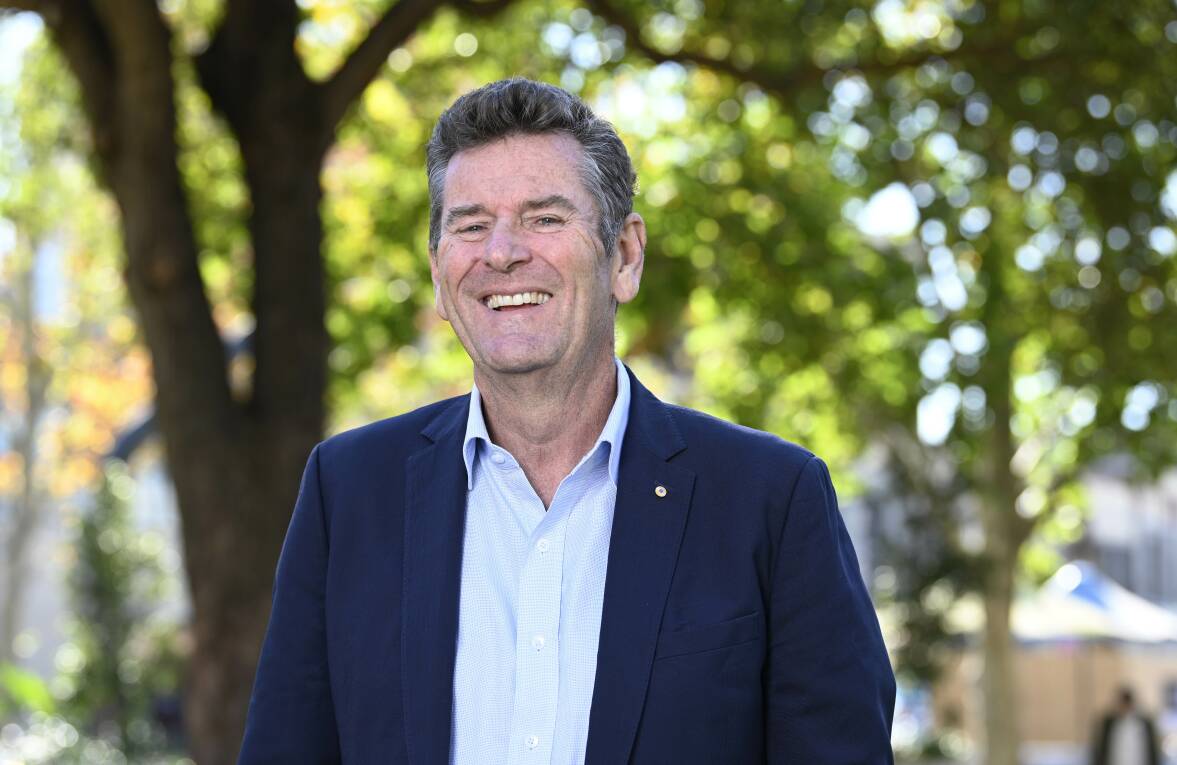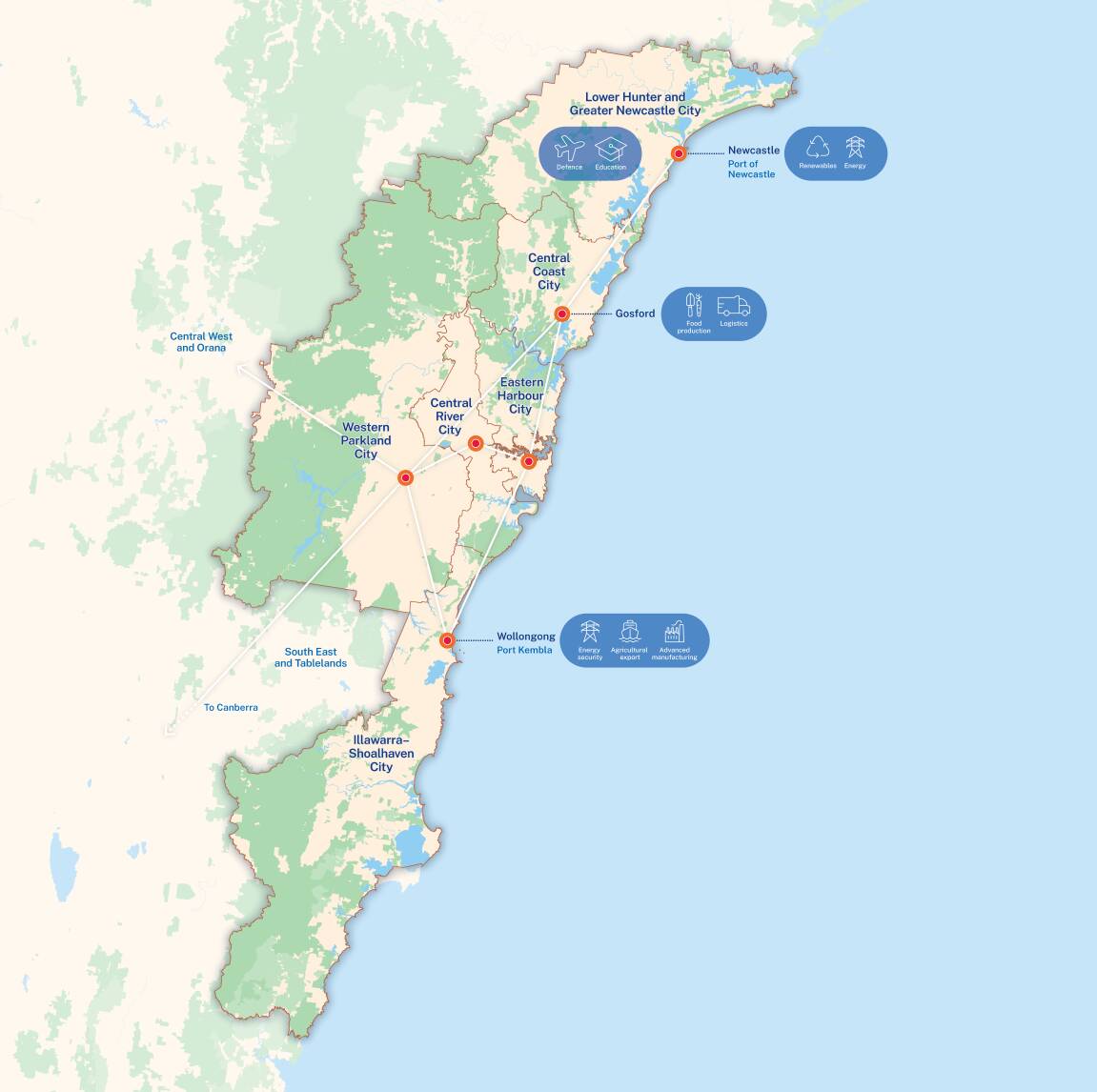
The head of the remodelled Greater Cities Commission says Newcastle's inclusion in the Sydney "mega-region" is not a "Macquarie Street takeover" but will help the Hunter compete globally.
NSW Parliament last week passed legislation to include the Lower Hunter, Central Coast and Illawarra-Shoalhaven in the former Greater Sydney Commission's remit.
The commission provides strategic planning and coordination to the NSW government and includes some of the state's most powerful public servants.
The organisation's "environment commissioner", Meg McDonald, will be at a Property Council lunch in Newcastle on Friday to talk about how the commission will operate in the Hunter.
The GCC will recruit city commissioners for Newcastle, Illawarra and the Central Coast, which will join Sydney's Western Parkland, Central River and Eastern Harbour "cities" in a "six-city region" with a forecast population of 9 million by 2050.
The Hunter's Labor politicians, including Newcastle lord mayor Nuatali Nelmes, have opposed the city being included in the GCC.
Committee for the Hunter chief Alice Thompson said in February that she hoped the reshaped GCC would help turn years of strategic planning into government funding for key infrastructure priorities such as high-speed rail and social housing.

GCC chief commissioner Geoff Roberts told the Newcastle Herald that it was "incumbent on us to add value fairly quickly so they can see that being regionally distinctive but part of a bigger picture is a one-plus-one equals more than two".
"This isn't a Macquarie Street takeover at all," he said. "If that's what happens, we've not achieved the sort of economic, social and environmental outcomes the city region provides for us.
"We're trying to be stronger locally and be part of a bigger thing that can face the world more effectively."
He said the region was in a "war for talent".
"We've got to make sure the jobs in the Lower Hunter and Newcastle are resilient.
"We know we've got some big challenges in industry reform. We need to make sure people are equipped for the workforce of the future."
Mr Roberts wants more affordable housing near railway lines, faster rail connections between Newcastle, Sydney and Wollongong and better digital connectivity.
"We need an inter-city and an intra-city transport strategy. Our job is to coordinate and make sure that we're not just doing transport; that we're doing housing and jobs attached to transport.
"I think that's a critical difference in how we operate. Our job is to create more jobs for more people closer to where they live."
The GCC's aim is to allow people to commute inside their city within 30 minutes and between cities in 90 minutes.
It will develop a six-cities discussion paper by mid-2022 and a new "region plan" by the end of 2023.
The property industry has pushed the state government to speed up planning and assessment of new subdivisions.
Mr Roberts said more housing supply was "one of the levers we will be focusing on" to address "systemic" housing affordability problems.
"It's not as simple as simply approving more housing. We've got to get the mix right, the place right.
"Key worker housing is crucial. If you're a nurse at John Hunter Hospital, it's not much use if you're an hour's commute away because that's the only house you can afford."
Mr Roberts said the Lower Hunter's greatest assets were its airport, port, university, main street, tertiary hospital, "classy" industries and the proposed Hunter Park housing and recreation redevelopment at Broadmeadow.
"The Lower Hunter and Greater Newcastle is very proud, very spirited, a place where people don't just live. It's very special to them, and the Greater Cities Commission needs to respect that," he said.
"There are obviously some people who are more enthusiastic about what we're trying to do than others, but I wouldn't say there's much division.
"The model of the commission where there is a city commissioner appointed with substantial involvement of local government allows the achievement of what the lord mayor's previous position is."
Mr Roberts said one of the GCC's core tenets was to ensure "appropriate local infrastructure" accompanied residential growth.
"We haven't always got this right across our whole state, frankly, in our whole nation.
"We can't keep developing residential suburbs that have to wait 10 or 20 years for the open space or the schools."







